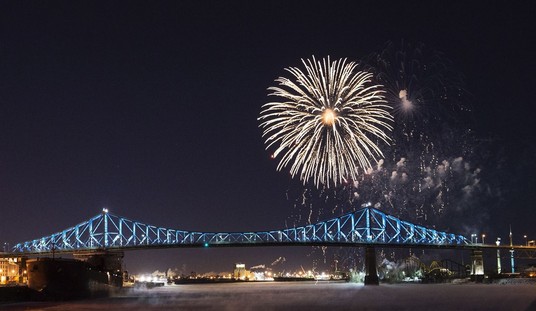Republicans anxious to start their trek back from the political wilderness have their hopes pinned on gubernatorial races in New Jersey and Virginia this year. And in Virginia, there are already signs of hope for Republicans eager to dispel the notion that Barack Obama has permanently altered the political terrain.
For starters, while the Republicans have already selected former state Attorney General Bob McDonnell as their own candidate, the Democratic gubernatorial primary has become a political donnybrook. What was a low-key race has recently heated up with a series of contentious debates, as Clinton friend and former DNC Chairman Terry McAuliffe began pulling away in the polls. His two Democratic challengers, Brian Moran and Creigh Deeds, have a common theme: McAuliffe is a national blowhard, not a Virginia Democrat. This local news report captures the essence of what is going on:
“When it comes to having a record fighting for Virginia Democrats, for Terry McAuliffe, necessity is the mother of invention,” Moran campaign manager Andrew Roos said. “Why should we believe he’ll be here for Virginia Democrats now when he has not been there for us before?”
As the June 9 primary election approaches, the two Democrats running for governor against McAuliffe have sharpened their attacks on his record, hoping to cast him as an outsider who seeks to buy his way into state politics.
The goal is to portray McAuliffe “not only as a non-Virginian, but also as a creature of money, not as one of issues and substance,” explained Larry Sabato, a University of Virginia political science professor.
Deeds, a state senator from Bath County, and Moran, a former state delegate from Alexandria, want to make the case that their time in state politics makes them better suited to serve as governor.
And as a Virginia political science professor put it, “McAuliffe’s weakness is McAuliffe” — that is, his penchant for puffery and his overbearing personality. (Even liberal publications observe McAuliffe’s act with a sense of bemusement, if not contempt.) But McAuliffe, with a hefty lead in the polls and plenty of money, may well be the Democratic standard-bearer in the November race. And then his opponents’ comments will be fodder for his Republican opponent, McDonnell.
Democrats thought this race would be a comparatively easy win. After all, Virginia now has two Democratic senators and a Congressional delegation with a majority of Democrats. Voters, including hundreds of thousands of new residents and first-time voters, flooded to the polls in November, giving Barack Obama the first win for a Democrat since LBJ. So certainly Virginia is safely in the blue column, right?
Well, not so fast. The Washington Post has picked up on what Republicans have been quietly saying: Virginia without Obama on the ballot is not an automatically blue state. The Post noted two unexpected GOP wins in city council races in heavily-Democratic Alexandria this week:
It was the fourth election this year in which Democrats lost — or won by uncomfortably close margins — local races where they were assumed by both parties to hold a sizable advantage. …
Republicans have demonstrated a particular strength in attracting absentee voters during this year’s local elections. … Republican Tom Davis, a former congressman from Fairfax County, said he believes that much of the Democratic surge in Virginia in recent years, particularly President Obama’s victory, was attributable to distaste for former president George W. Bush. Now, “the oxygen that got these guys up in the morning is gone,” Davis said.
Davis said he believes McDonnell has the advantage going into November because Virginia is a “countercyclical” state, meaning that, for the past 40 years, the party of the president has lost the governor’s race and control of the congressional delegation.
And there is a world of difference between a gubernatorial race focused on transportation and job development, and a once-in-a-lifetime presidential race in which young voters and African Americans turned out in record numbers to elect the first African American president who ran on a platform of “hope” and “change.”
McAuliffe is many things — but a breath of fresh air from politics as usual isn’t one of them. In fact, as his Democratic opponents are all too eager to point out, he would almost certainly bring his brand of hyper-partisan politics to a state which has generally enjoyed a less contentious brand of politics. Democrats like Tim Kaine and Mark Warner won gubernatorial races by positioning themselves as can-do problem solvers who did not represent national political interests. McAuliffe’s style and his huge war chest would, at the very least, increase the acrimony between the state legislature (which is partially controlled by Republicans) and the governor.
So the challenge for Democrats is two-fold: complete the primary without providing more ammunition to the McDonnell campaign and find a way to restore the excitement and activism which has seeped away in the six months since the election. As for Republicans, the chance to prove that a key swing state is still within their grasp is an enticing one. And their biggest asset may be Terry McAuliffe.









Join the conversation as a VIP Member